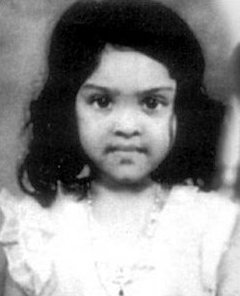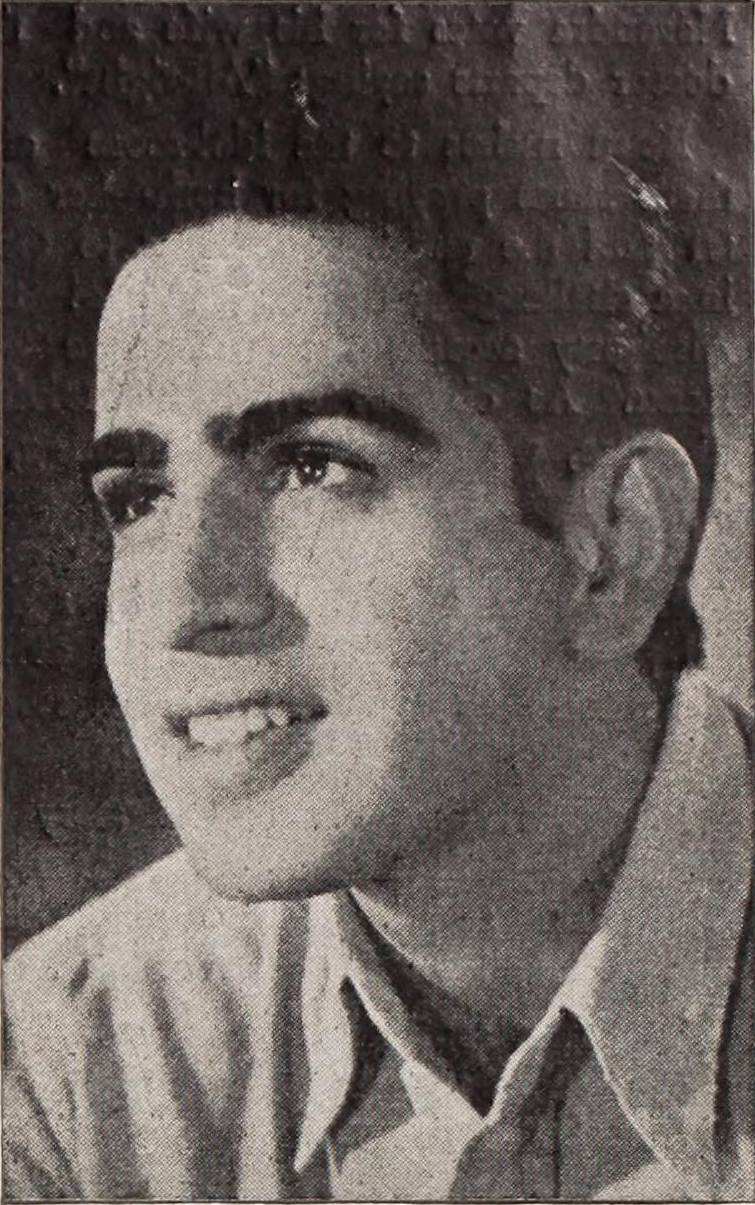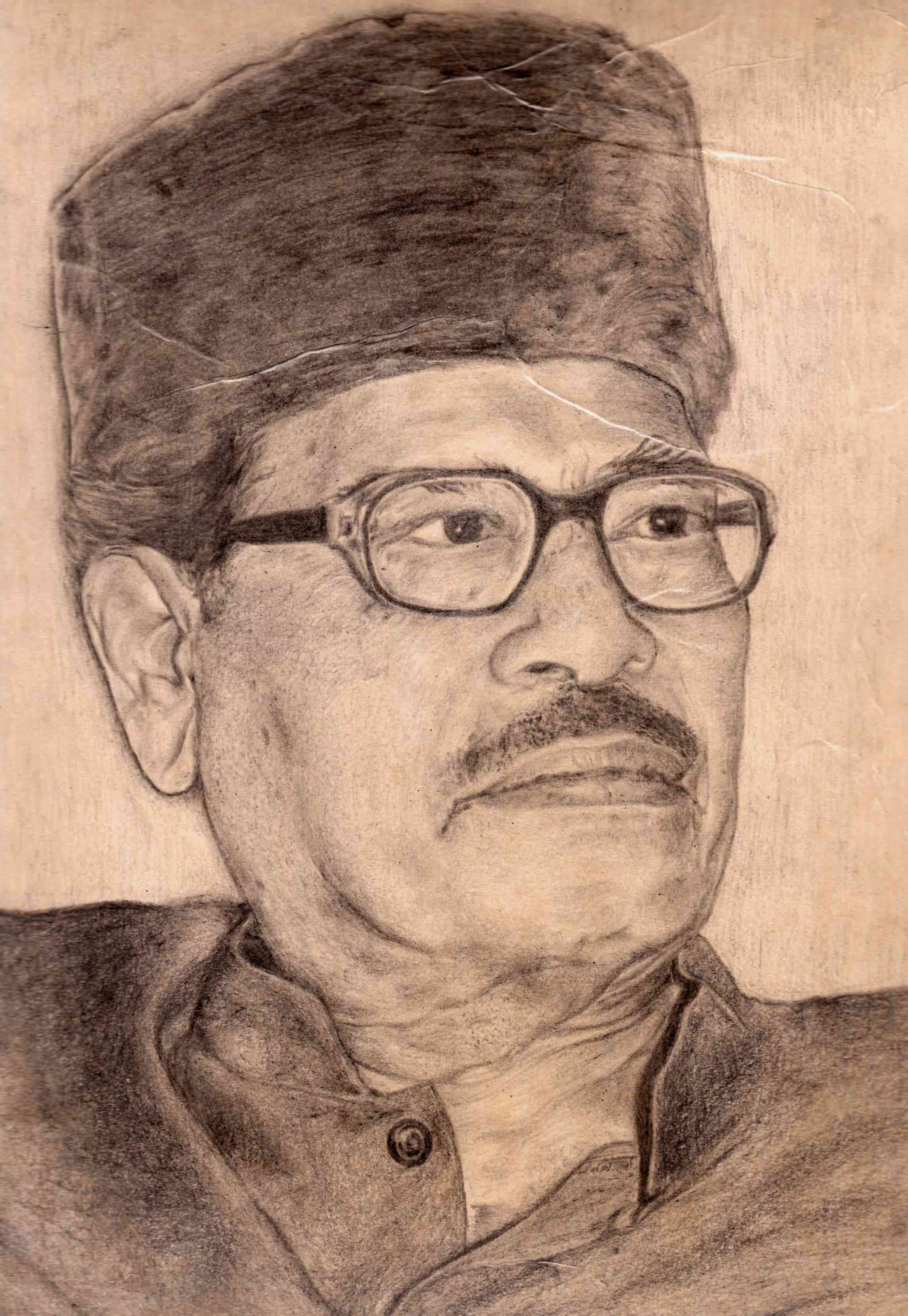|
Paigham
''Paigham'' () is a 1959 Indian Hindi-language comedy drama film directed by S. S. Vasan. The film stars Dilip Kumar, Vyjayanthimala in lead roles, with Raaj Kumar, Pandari Bai, B. Saroja Devi, Motilal, Johnny Walker in other important roles. The film's music was composed by C. Ramchandra. This was the first time Dilip Kumar and Raaj Kumar appeared in a film together. They later appeared together once again over three decades later for the 1991 film '' Saudagar''. The film was hugely successful and was declared a blockbuster at box office. The film was later remade in Tamil as '' Irumbu Thirai'' by Vasan, with Vyjayanthimala and Saroja Devi reprising their roles. Plot The movie traces the lives of the family of a widowed lady, her two sons and daughter. Mrs. Lal, a widowed lady lives with her two sons, Ram and Ratan, her unmarried daughter, Sheela; Ram's wife, Parvati and her children. Ram works in a mill and Ratan is studying engineering in Calcutta. When Ratan returns, h ... [...More Info...] [...Related Items...] OR: [Wikipedia] [Google] [Baidu] |
Ramanand Sagar
Chandramauli Chopra ( ; 29 December 1917 – 12 December 2005) known professionally as Ramanand Sagar, was an Indian filmmaker, editor, playwright, poet and an author. He is best known for making the television show '' Ramayan'' (1987-1988). The Government of India honoured him with Padma Shri in 2000 for his contribution to Indian cinema and art. Early life Sagar was born at Asal Guru near Lahore. His great-grandfather, Lala Shankar Das Chopra, migrated from Lahore to Kashmir. Ramanand was adopted by his maternal grandmother, who had no sons, at which point his name was changed from 'Chandramouli Chopra' to 'Ramanand Sagar'. After Sagar's biological mother died, his father remarried and had further children with her, including Vidhu Vinod Chopra, who is thus Sagar's half-brother. Sagar worked as a peon, truck cleaner, soap vendor, goldsmith apprentice etc. during the day and studied for his degree at night. He was a gold medalist in Sanskrit and Persian from the University of ... [...More Info...] [...Related Items...] OR: [Wikipedia] [Google] [Baidu] |
Irumbu Thirai (1960 Film)
''Irumbu Thirai'' () is a 1960 Indian Tamil-language film produced and directed by S. S. Vasan. The film stars Sivaji Ganesan, Vyjayanthimala, K. A. Thangavelu and B. Saroja Devi, with S. V. Ranga Rao, Pandari Bai and Vasundhara Devi in supporting roles. A remake of Vasan's own Hindi film '' Paigham'' (1959), it revolves around the two brothers Manikam and Kondamuthu and their mill owner. The soundtrack was composed by S. V. Venkatraman and the lyrics were written by Kothamangalam Subbu, Papanasam Sivan and Pattukkottai Kalyanasundaram. The editing was done by M. Umanath while the camera was handled by P. Elappa and N. C. Bala Krishna. The film was released on 14 January 1960 and ran more than 175 days in theatres. Plot The story revolves around the two brothers Manikam and Kondamuthu and their mill owner. Cast * Sivaji Ganesan as Manickam * Vyjayanthimala as Manju * B. Saroja Devi as Malathi * Pandari Bai as Parvathi * S. V. Subbaiah as Saravanan * S. V. Ranga Rao ... [...More Info...] [...Related Items...] OR: [Wikipedia] [Google] [Baidu] |
Vyjayanthimala
Vyjayanthimala (born 13 August 1936) is a former Indian actress, dancer and parliamentarian. She is the recipient of several accolades, including two BFJA Awards and five Filmfare Awards. She made her screen debut at the age of thirteen with the Tamil film '' Vaazhkai'' (1949), and followed this with a role in the Telugu film ''Jeevitham'' (1950). Her first work in Hindi cinema was the social guidance film '' Bahar'' (1951), which she headlined, and achieved her breakthrough with the romantic film '' Nagin'' (1954). She is currently 86 years old. She garnered a lot of critical acclaim for her role in the period drama film ''Devdas'' (1955), where she played Chandramukhi, the Tawaif with a heart of gold. The film and her acting was praised, later considered to be her magnum opus. For ''Devdas'', she won the Filmfare Award for Best Supporting Actress which she refused, stating that she played a leading role equal to that of Suchitra Sen, her co-star, and so she could not acce ... [...More Info...] [...Related Items...] OR: [Wikipedia] [Google] [Baidu] |
Motilal (actor)
Motilal Rajvansh (4 December 1910 – 17 June 1965) was an Indian actor and the winner of Filmfare Best Supporting Actor Award for ''Devdas (1955 film), Devdas'' (1955) and ''Parakh (1960 film), Parakh'' (1960). He is credited with being among Hindi cinema's first natural actors. He also directed the film ''Chhoti Chhoti Baten'' (1965), but died before its release. At the 13th National Film Awards, it won the award for National Film Award for Third Best Feature Film, Certificate of Merit for the Third Best Feature Film and he posthumously won the National Film Award for Best Story, Certificate of Merit for the Best Story Writer. Early life and background Born in Shimla on 4 December 1910, Motilal came from a distinguished family. His father was a renowned educationist, who died when Motilal was one year old. He was brought up by his uncle who was a well-known civil surgeon in Uttar Pradesh. At first, Moti was sent to an English school at Shimla and later, in Uttar Pradesh (UP) ... [...More Info...] [...Related Items...] OR: [Wikipedia] [Google] [Baidu] |
Dilip Kumar
Mohammed Yusuf Khan (; 11 December 1922 – 7 July 2021), better known by his stage name Dilip Kumar, was an Indian actor who worked in Hindi cinema. Credited with pioneering method acting in cinema, he dominated the Indian movie scene from late 1940s throughout 1960s, * * See Dilip Kumar section, * * being referred to as ''"Abhinay Samrat"'' (Hindi for "Emperor of Acting") by the audience. Kumar holds the record for most wins for the Filmfare Award for Best Actor (eight, which was later equalled by Shah Rukh Khan) and was also the inaugural recipient of the award. He holds the best box-office record for a star (male or female) in Hindi cinema with over eighty-percent box-office successes."The best box office record for a star(male or female) in hindi films is held by the legendary Dilip Kumar." *"Based on purely box office record Dilip Kumar stands way ahead as his is by far the best box office record with 80% of his films being successes and nearly 50% outright hits." * ... [...More Info...] [...Related Items...] OR: [Wikipedia] [Google] [Baidu] |
Motilal Rajvansh
Motilal Rajvansh (4 December 1910 – 17 June 1965) was an Indian actor and the winner of Filmfare Best Supporting Actor Award for '' Devdas'' (1955) and '' Parakh'' (1960). He is credited with being among Hindi cinema's first natural actors. He also directed the film ''Chhoti Chhoti Baten'' (1965), but died before its release. At the 13th National Film Awards, it won the award for Certificate of Merit for the Third Best Feature Film and he posthumously won the Certificate of Merit for the Best Story Writer. Early life and background Born in Shimla on 4 December 1910, Motilal came from a distinguished family. His father was a renowned educationist, who died when Motilal was one year old. He was brought up by his uncle who was a well-known civil surgeon in Uttar Pradesh. At first, Moti was sent to an English school at Shimla and later, in Uttar Pradesh (UP). Thereafter, he shifted to Delhi where he continued with school and college. Acting career Motilal Rajvansh said of ... [...More Info...] [...Related Items...] OR: [Wikipedia] [Google] [Baidu] |
Raaj Kumar
Raaj Kumar (born Kulbhushan Pandit; 8 October 1926 3 July 1996) was an Indian actor who worked in Hindi films. He appeared in the Oscar-nominated 1957 film ''Mother India'' and starred in over 70 Hindi films in a career that spanned over four decades. Personal life Kulbhushan Pandit was born in Loralai, Baluchistan, British India (now Pakistan) in a Kashmiri Pandit family. In the late 1940s, he moved to Bombay, where he became a sub-inspector under Bombay Police. He married Jennifer Pandit, an Anglo-Indian, whom he met on a flight where she was an air hostess. She later changed her name to Gayatri Kumar as per Hindu customs. They had three children, sons Puru Raaj Kumar (an actor), Panini Raaj Kumar and daughter Vastavikta Pandit, who made her screen debut in 2006 film ''Eight: The Power of Shani''. Career Raaj Kumar made his acting debut in the 1952 film ''Rangili'' and appeared in films like ''Aabshar'', ''Ghamand'' and ''Lakhon Mein Ek'', but it was as Prince Naushazad ... [...More Info...] [...Related Items...] OR: [Wikipedia] [Google] [Baidu] |
Nagi Reddy
Bommireddy Nagi Reddi (2 December 1912 – 25 February 2004) was an Indian film producer and director mainly in Telugu cinema. He set up Vijaya Vauhini Studios in Chennai, which was then Asia's biggest film studio. As his elder brother (who was also a director) had the same initials and was known as B. N. Reddi, Nagi Reddi was popularly known as B. Nagi Reddi. Some of the movies produced by Nagi Reddi include ''Patala Bhairavi'' (1951), ''Missamma'' (1955), ''Maya Bazaar'' (1957), ''Gundamma Katha'' (1962), ''Maduve Madinodu'' (1965-Kannada), ''Enga Veetu Pillai'' (1965), ''Ram Aur Shyam'' (1967), '' Shriman Shrimati'' (1982), ''Julie'' (1975), and '' Swarg Narak'' (1978), '' Nam Naadu'' (1969) the latter two of which were in Hindi. Reddi has served as the president of Film Federation of India twice, in 1960–61 and 1962–63. Film career Nagi Reddi along with his friend and partner Aluri Chakrapani produced over fifty films in four decades in the four South Indian languages ... [...More Info...] [...Related Items...] OR: [Wikipedia] [Google] [Baidu] |
7th Filmfare Awards
The 7th Filmfare Awards were held in 1960. ''Anari'' won 5 awards, including Best Actor (for Raj Kapoor) and Best Supporting Actress (for Lalita Pawar), thus becoming the most-awarded film at the ceremony. Main Awards Best Film *'' Sujata'' Best Director *''Bimal Roy – Sujata'' Best Actor *''Raj Kapoor – Anari'' Best Actress *''Nutan – Sujata'' Best Supporting Actor – Male *''Manmohan Krishna – Dhool Ka Phool'' Best Supporting Actor – Female *''Lalita Pawar – Anari'' Best Music *''Shankar Jaikishan – Anari'' Best Lyrics *'' Shailendra – Anari for "Sab Kuch Seekha Humne"'' Best Playback Singer *''Mukesh – Anari for "Sab Kuch Seekha Humne"'' Technical Awards Best Cinematography *'' V.K. Murthy for Kaagaz Ke Phool'' Best Art Direction *'' M.R. Acharekar for Kaagaz Ke Phool'' Best Dialogue *''Ramanand Sagar for Paigham'' See also *Filmfare Awards References External links 7th Filmfare awards {{Filmfare Awards Filmfare Awards Filmfare ... [...More Info...] [...Related Items...] OR: [Wikipedia] [Google] [Baidu] |
Manna Dey
Prabodh Chandra Dey (May 1, 1919 − October 24, 2013), known by his stage name Manna Dey, was an internationally acclaimed and celebrated Indian playback singer, music director, and a musician. As a classical vocalist, he belonged to the Bhendibazaar Gharana and was trained under Ustad Aman Ali Khan. He is considered one of the most versatile and celebrated vocalists of the Hindi film industry, often credited with the success of Indian classical music in Hindi commercial movies. As a musician, Dey is best known for infusing Indian classical music in a pop framework that ushered the golden period in Hindi cinema. In a career spanning over five decades, Dey recorded total 3,047 songs, though most primarily in Bengali and Hindi; Dey also sang in 14 other Indian languages, including Bhojpuri, Punjabi, Assamese, Gujarati, Kannada, Malayalam, and Chhattisgarhi. The mid-50s to 70s were considered the peak of his musical career. The Government of India honored him with the Padma ... [...More Info...] [...Related Items...] OR: [Wikipedia] [Google] [Baidu] |
Kavi Pradeep
Kavi Pradeep (born Ramchandra Narayanji Dwivedi; 6 February 1915 – 11 December 1998), was an Indian poet and songwriter who is best known for his patriotic song "''Aye Mere Watan Ke Logo"'' written as a tribute to the soldiers who had died defending the country during the Sino-Indian War. His first recognition came for his patriotic lyrics for the film '' Bandhan'' (1940). His status as a nationalistic writer got immortalised for writing a daringly patriotic song "Door Hato Ae Duniya Walo" (Move Away O Outsiders) in India's first golden jubilee hit '' Kismet'' (1943) because he was forced to go underground to avoid arrest immediately after the film's release that invited the ire of British government. In a career span of five decades, Kavi Pradeep wrote about 1,700 songs and nationalistic poems including the lyrics for some 72 films, including hits like "Chal Chal Re Naujawan" in film ''Bandhan'' (1940) and "Aao Bachcho Tumhein Dikhayen" and " De Dee Hame Azaadi" in the fi ... [...More Info...] [...Related Items...] OR: [Wikipedia] [Google] [Baidu] |
Ishwarlal (actor)
Ishwarlal was a Bollywood Hindi actor, director and producer, active from 1930 to 1966. He was born 9 October 1911 at Waghania, Bombay Presidency, British India as Hariprashad Joshi. He died on 22 January 1969 in Bombay (Mumbai), India aged 57. He acted in 86 films, directed 11 and sang in 14. As Actor *1973 ''Kahani Kismat Ki'' *1963 '' Meri Surat Teri Ankhen'' *1963 ''Jevi Chhun Tevi'' *1963 ''Lakho Vanzaro'' ** ''Satyawan Savitri'' *1962 ''Aalha Udal'' ** ''Baghdad Ki Raaten'' ** ''Bezubaan'' ** ''Janam Janamna Sathi'' *1961 ''Chundali Chokha'' ** ''Hiro Salat'' *1959 '' Paigham'' *1958 '' Gopichand'' *1953 ''Shuk Rambha'' ** ''Naulakha haar'' *1952 ''Indrasen'' ** ''Mr. Sampat'' *1951 ''Jai Shankar'' ** '' Samsaram'' *1950 ''Sati Narmada'' ** ''Bhagwan Shri Krishna'' *1949 ''Matribhoomi'' ** ''Nar Narayan'' *1947 ''Rivaj'' *1946 ''Sohni Mahiwal'' ** ''Subhadra'' ** ''Maharana Pratap'' *1945 '' Badi Maa'' ** ''Sharbati Aankhen'' ** ... [...More Info...] [...Related Items...] OR: [Wikipedia] [Google] [Baidu] |






